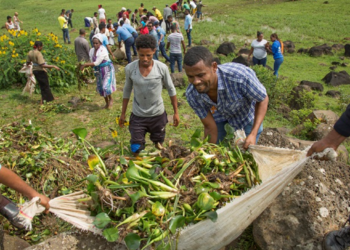Morocco uses its links with Israel to improve water and food security –
Morocco is a country with a long coastline and rich marine resources. However, due to overfishing and climate change, the country has been facing challenges in meeting its growing demand for fish. To address this issue, the Moroccan government has been investing in aquaculture, which has been growing rapidly in recent years.
One of the most promising areas of aquaculture in Morocco is the production of sea bass and sea bream, which are highly valued in the European market. The country has several marine farms along its coast, with the largest ones located in the north near Tangier and the south near Agadir.
Morocco is using its new ties with Israel to combat water and food insecurity. A recent example of this emerging partnership was the signing this month of a letter of intent to study algae in the Sahara region. Morocco’s Mohammed VI Polytechnic University UM6P and Israeli startups that focus on creating sustainable food solutions will participate in the investigation, Al-Monitor reported.
Israeli Startups Partner with Morocco to Boost Aquaculture Industry and Tackle Food Insecurity
The startups are led by Israeli investment company Halman Aldubi Technologies, which produces fish feed from organic municipal waste, insects and algae. Such developments are essential for Morocco as it strives to reach its goal of producing 350,000 tonnes of edible fish per year through aquaculture, up from the current 1,300 tonnes per year.
The announcement follows an earlier partnership signed between the Israeli company AgriGo and the Moroccan National Agency for the Development of Aquaculture for an $11 million fish farm near Tangier.
In addition to aquaculture, Israel has shared its expertise in water desalination. Last year, Morocco experienced its worst drought in over three decades. Seawater desalination is one of the ways to achieve water stability by 2030, said Minister of Equipment and Water Nizar Baraka at a forum in Morocco.
In Israel, five desalination plants provide nearly 80% of the country’s drinking water.
Morocco uses its links with Israel to improve water and food security









